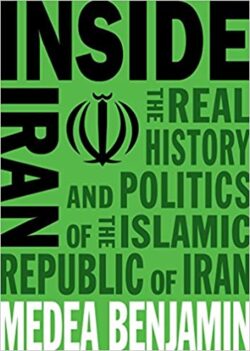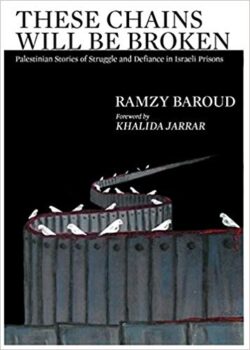 Photo credit: ICAN (International Campaign to Abolish Nuclear Weapons)
Photo credit: ICAN (International Campaign to Abolish Nuclear Weapons)
Imagine this scenario:
A month before the vote on the federal budget, progressives in Congress declared, “We’ve studied President Biden’s proposed $753 billion military budget, an increase of $13 billion from Trump’s already inflated budget, and we can’t, in good conscience, support this.”
Now that would be a show stopper, particularly if they added, “So we have decided to stand united, arm in arm, as a block of NO votes on any federal budget resolution that fails to reduce military spending by 10-30 percent. We stand united against a federal budget resolution that includes upwards of $30 billion for new nuclear weapons slated to ultimately cost nearly $2 trillion. We stand united in demanding the $50 billion earmarked to maintain all 800 overseas bases, including the new one under construction in Henoko, Okinawa, be reduced by a third because it’s time we scaled back on plans for global domination.”
“Ditto,” they say, “for the billions the President wants for the arms-escalating US Space Force, one of Trump’s worst ideas, right up there with hydroxychloroquine to cure COVID-19, and, no, we don’t want to escalate our troop deployments for a military confrontation with China in the South China Sea. It’s time to ‘right-size’ the military budget and demilitarize our foreign policy.”
Progressives uniting as a block to resist out-of-control military spending would be a no-nonsense exercise of raw power reminiscent of how the right-wing Freedom Caucus challenged the traditional Republicans in the House in 2015. Without progressives on board, President Biden may not be able to secure enough votes to pass a federal budget that would then green light the reconciliation process needed for his broad domestic agenda.
For years, progressives in Congress have complained about the bloated military budget. In 2020, 93 members in the House and 23 in the Senate voted to cut the Pentagon budget by 10% and invest those funds instead in critical human needs. A House Spending Reduction Caucus, co-chaired by Representatives Barbara Lee and Mark Pocan, emerged with 22 members on board.
Meet the members of the House Defense Spending Reduction Caucus:
Barbara Lee (CA-13); Mark Pocan (WI-2); Bonnie Watson Coleman (NJ-12); Ilhan Omar (MN-5); Raùl Grijalva (AZ-3); Mark DeSaulnier (CA-11); Jan Schakowsky(IL-9); Pramila Jayapal (WA-7); Jared Huffman (CA-2); Alan Lowenthal (CA-47); James P. McGovern (MA-2); Peter Welch (VT-at large); Alexandria Ocasio-Cortez (NY-14); Frank Pallone, Jr (NJ-6).; Rashida Tlaib (MI-13); Ro Khanna (CA-17); Lori Trahan (MA-3); Steve Cohen (TN-9); Ayanna Pressley (MA-7), Anna Eshoo (CA-18).
We also have the Progressive Caucus, the largest Caucus in Congress with almost 100 members in the House and Senate. Caucus Chair Pramila Jayapal is all for cutting military spending. “We’re in the midst of a crisis that has left millions of families unable to afford food, rent, and bills. But at the same time, we’re dumping billions of dollars into a bloated Pentagon budget,” she said. “Don’t increase defense spending. Cut it—and invest that money into our communities.”
Now is the time for these congresspeople to turn their talk into action.
Consider the context. President Biden urgently wants to move forward on his American Families Plan rolled out in his recent State of the Union address. The plan would tax the rich to invest $1.8 trillion over the next ten years in universal preschool, two years of tuition-free community college, expanded healthcare coverage and paid family medical leave.
President Biden, in the spirit of FDR, also wants to put America back to work in a $2-trillion infrastructure program that will begin to fix our decades-old broken bridges, crumbling sewer systems and rusting water pipes. This could be his legacy, a light Green New Deal to transition workers out of the dying fossil fuel industry.
But Biden won’t get his infrastructure program and American Families Plan with higher taxes on the rich, almost 40% on income for corporations and those earning $400,000 or more a year, without Congress first passing a budget resolution that includes a top line for military and non-military spending. Both the budget resolution and reconciliation bill that would follow are filibuster proof and only require a simple majority in the House and Senate to pass.
Easy.
Maybe not.
To flex their muscles, Republicans may refuse to vote for a budget resolution crafted by the Democratic Party that would open the door to big spending on public goods, such as pre-kindergarten and expanded health care coverage. That means Biden would need every Democrat in the House and Senate on board to approve his budget resolution for military and non-military spending.
So how’s it looking?
In the Senate, Democrat Joe Manchin from West VA, a state that went for Trump over Biden more than two-to-one, wants to scale back Biden’s infrastructure proposal, but hasn’t sworn to vote down a budget resolution. As for Senator Bernie Sanders, the much-loved progressive, ordinarily he might balk at a record high military budget, but if the budget resolution ushers in a reconciliation bill that lowers the age of Medicare eligibility to 60 or 55, the Chair of the Senate Budget Committee may hold his fire.
That leaves anti-war activists wondering if Senator Elizabeth Warren, a critic of the Pentagon budget and “nuclear modernization,” would consider stepping up as the lone holdout in the Senate, refusing to vote for a budget that includes billions for new nuclear weapons. Perhaps with a push from outraged constituents in Massachusetts, Warren could be convinced to take this bold stand. Another potential hold out could be California Senator Dianne Feinstein, who co-chairs the Senate Appropriations Subcommittee on Energy and Water Development, the committee that oversees the budgeting for nuclear weapons. In 2014, Feinstein described the US nuclear arsenal program as “unnecessarily and unsustainably large“.
Over in the House, Biden needs at least 218 of the 222 Democrats to vote for the budget resolution expected to hit the floor in June or July, but what if he couldn’t get to 218? What if at least five members of the House voted no—or even just threatened to vote no—because the top line for military spending was too high and the budget included new “money pit” nuclear land-based missiles to replace 450 Minute Man missiles.
The polls show most Democrats oppose “nuclear modernization”—a euphemism for a plan that is anything but modern given that 50 countries have signed on to the Treaty on the Prohibition of Nuclear Weapons making nuclear weapons illegal and the Nuclear Non-Proliferation Treaty (NPT) requires the US pursue nuclear disarmament to avoid a catastrophic accident or intentional atomic holocaust.
Now is the time for progressive congressional luminaries such as the Squad’s AOC, Ilhan Omar, Rashida Tlaib, and Ayanna Presley to unite with Congressional Progressive Caucus Chair Pramila Jayapal, as well as Barbara Lee, Mark Pocan and others in the House Spending Reduction Caucus to put their feet down and stand as a block against a bloated military budget.
Will they have the courage to unite behind such a cause? Would they be willing to play hardball and gum up the works on the way to Biden’s progressive domestic agenda?
Odds improve if constituents barrage them with phone calls, emails, and visible protests. Tell them that in the time of a pandemic, it makes no sense to approve a military budget that is 90 times the budget of the Centers for Disease Control and Prevention (CDC). Tell them that the billions saved from “right sizing” the Pentagon could provide critical funds for addressing the climate crisis. Tell them that just as we support putting an end to our endless wars, so, too, we support putting an end to our endless cycle of exponential military spending.
Call your representative, especially If you live in a congressional district represented by one of the members of the Progressive Caucus or the House Spending Reduction Caucus. Don’t wait for marching orders from someone else. No time to wait. In the quiet of the COVID hour, our Congress toils away on appropriations bills and a budget resolution. The showdown is coming soon.
Get organized. Ask for meetings with your representatives or their foreign policy staffers. Be fierce; be relentless. Channel the grit of a Pentagon lobbyist.
This is the moment to demand a substantial cut in military spending that defunds new nuclear weapons.
This post was originally published on Radio Free.





 (@OwenJones84)
(@OwenJones84) 